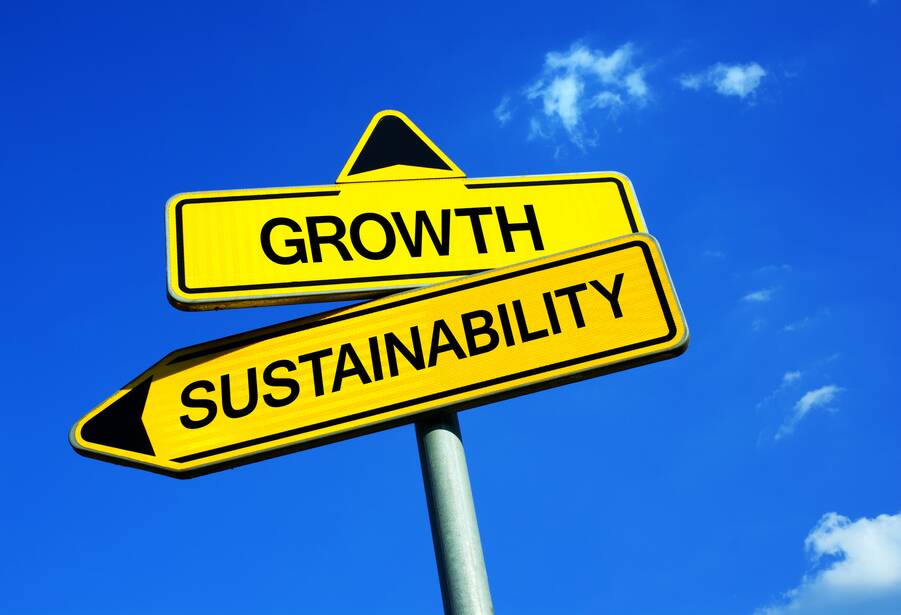
Increasing gross domestic product (GDP) is seen as the highest goal for nearly every country. It can make a society more prosperous, but can an economy grow indefinitely? If there are limits, have we already passed them?
Fifty years ago, the Club of Rome released its report, Limits to Growth. It found that if economic growth continued, global population and industrial production would peak and then decline in the first half of this century. This was due mainly to pollution and the decreasing abundance and quality of minerals.
Many criticised the report, but studies in the last decade have found that actual outcomes have closely followed the Limits to Growth modelling.
The Club of Rome was considering limits to the amounts of resources used, but there is a very close relationship between this and GDP.
While economists propose decoupling economic growth from resource use and pollution by increasing productivity, it is unlikely this can be done long-term.
There is strong evidence that global economic activity is already unsustainable. Humans are extracting more resources than the Earth can regenerate and creating more pollution than our planet can treat.
Earth Overshoot Day marks the day when humanity has used all the biological resources that nature regenerates each year, and after that, we are eating into natural capital.
This year, that occurred on July 28 and the date is arriving steadily earlier every year.
This degradation of nature is not only causing climate change but also extinction of animals and plants, soil loss, shortage of clean freshwater and overfishing.
Limits to Growth warned that the economy can overshoot Earth's capacities for a while, but this must eventually lead to economic decline.
Our modern lifestyles can make it seem that environmental degradation is unfortunate but necessary for progress.
The recent Federal State of the Environment report, however, made it clear that the wellbeing of Australians is dependent on a healthy environment. Recent extreme bushfires, floods and COVID provide stark reminders.
The State of the Environment report went further to warn that environmental degradation threatens humanity and could cause societal collapse - echoing Limits to Growth.
The good news is that the Club of Rome said clearly that it was possible to change the path and avoid disaster.
This remains true today, but we must act quickly.
A number of countries are now moving from an economic growth priority towards "wellbeing economies". They are prioritising environmental protection, education, health and reducing poverty and inequality.
Listen to the Fuzzy Logic Science Show at 11am Sundays on 2XX 98.3FM.
Send your questions to AskFuzzy@Zoho.com Twitter@FuzzyLogicSci







